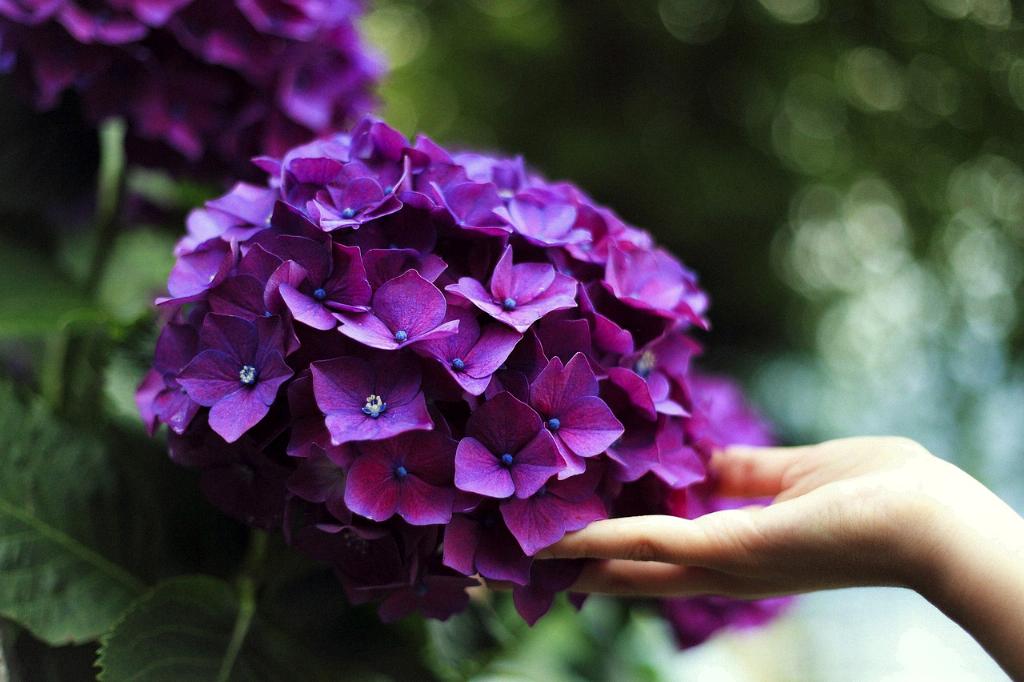Hydrangeas are known for their beautiful blooms and lush green foliage. So, it can be quite concerning when you notice that the leaves of your hydrangea plant are starting to turn brown. There are several factors that could be contributing to this issue, so let’s delve into why hydrangea leaves might be changing color.
1. Lack of Water
One of the most common reasons for hydrangea leaves turning brown is a lack of proper watering. Hydrangeas require consistent moisture to thrive, so if the plant is not getting enough water, it can lead to stress and browning of the leaves.
2. High Temperatures
Another factor that can cause hydrangea leaves to turn brown is exposure to high temperatures. When hydrangeas are subjected to extreme heat, their leaves can become scorched and brown. Providing some shade during the hottest parts of the day can help prevent this issue.
3. Sunlight Exposure
While hydrangeas enjoy bright, indirect sunlight, too much direct sunlight can be harmful to the plant. If your hydrangea is getting too much sun, especially during the hottest hours of the day, it may lead to browning of the leaves. Consider moving the plant to a location with more shade to protect its foliage.
4. Soil Conditions
The health of the soil in which your hydrangea is planted can also impact the color of its leaves. Poor soil quality or improper pH levels can result in nutrient deficiencies that manifest as browning leaves. Testing the soil and amending it as needed can help address this issue.
5. Overfertilization
While fertilizing your hydrangeas is important for their growth and flowering, overfertilizing can have negative consequences, including browning of the leaves. Excessive amounts of certain nutrients can cause stress to the plant, leading to discoloration of the foliage.
6. Disease and Pests
Hydrangeas are susceptible to various diseases and pests that can cause their leaves to turn brown. Keep an eye out for signs of fungal infections, such as powdery mildew, or pest infestations, like aphids or spider mites, which can damage the foliage.
7. Root Issues
If the roots of your hydrangea plant are damaged or restricted, it can impact the plant’s ability to absorb nutrients and water, resulting in brown leaves. Ensure that the roots have sufficient space to grow and are not being constricted by surrounding structures or dense soil.
8. Environmental Stress
Environmental factors, such as sudden temperature changes, strong winds, or drought conditions, can also contribute to the browning of hydrangea leaves. Providing protection during extreme weather conditions can help mitigate stress on the plant.
9. Improper Pruning
Pruning hydrangeas at the wrong time or in the wrong manner can lead to browning of the leaves. It’s important to understand the specific pruning requirements of your hydrangea variety and follow proper techniques to avoid damaging the plant and causing leaf discoloration.
10. Nutrient Deficiencies
If your hydrangea is lacking essential nutrients, such as nitrogen, magnesium, or iron, it can result in nutrient deficiencies that manifest as browning or yellowing of the leaves. Consider supplementing with a balanced fertilizer to address any deficiencies.
11. Watering Technique
How you water your hydrangea can also impact the health of its leaves. Watering too frequently or inadequately can stress the plant and lead to browning of the foliage. Ensure that you are providing thorough, deep waterings to support the hydrangea’s root system.
12. Overall Care and Maintenance
Ultimately, the overall care and maintenance of your hydrangea plant play a significant role in the health of its leaves. By ensuring proper watering, sunlight exposure, soil quality, and pest control, you can help prevent browning and maintain vibrant, healthy foliage on your hydrangeas.

